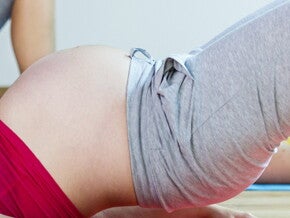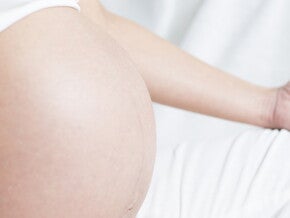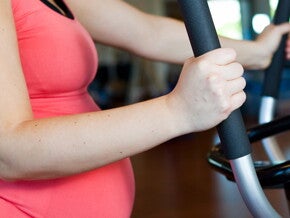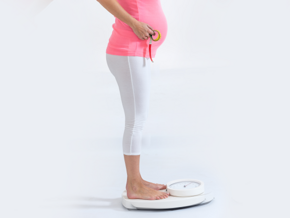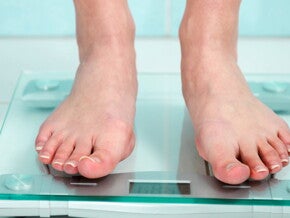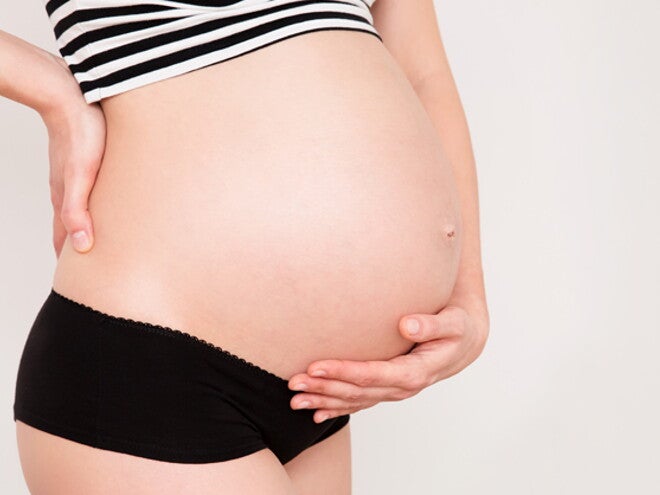
This laxity can increase the incidence of instability and strain. It is therefore important to do postural correction and safe, controlled exercise routines.
Regular exercise will help adjust your posture, enabling your body to maintain alignment and balance.
Check your posture
- Stand sideways in front of a full-length mirror.
- Stand with your feet comfortably apart and move from side to side until your weight is evenly distributed.
- Knees bent and relaxed.
- Tilt your pelvis slightly (imagine you are smoothing down a dress before sitting in a chair).
- Tilt your head up, with your chin parallel to the floor.
- Straighten your upper back as you lift up your chest.
- Spread your shoulders, letting them drop toward the floor.
- Don’t lift your shoulders up toward your ears, or bend your head forward.
Note: During any exercise routine, ensure that your pelvis is tilted slightly and avoid
overextending your lower back.
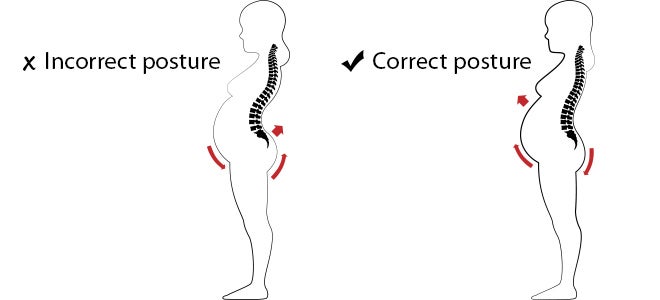
Standing
- Avoid standing for long periods during the advanced stages of pregnancy.
- Stimulate the circulation in your legs by rocking back and forth, shifting weight
from side to side and rotating ankles in small circles. - Try placing one foot on a small stool to help flatten your back and reduce the
strain on your lower back muscles
Walking
- Keep your feet parallel and your body erect when you walk, to prevent back strain.
- Avoid high-heeled shoes and heavy bags slung over your shoulder, as these will disturb your postural balance.
Sitting
- Avoid crossing your legs when sitting, as this can impair your circulation.
- Don’t slump or allow your lumbar spine, pelvis and chest to collapse when sitting.
- Make sure your back is well-supported.
- When relaxing avoid slumping, rather sit with your back against a wall, or squat comfortably on a low stool or a pile of books.
Pelvic-tilt exercise
Aim:
- To protect your back from strain during pregnancy.
- To strengthen your abdominals and improve flexibility in your lower back.
- This exercise is especially useful for relieving backache
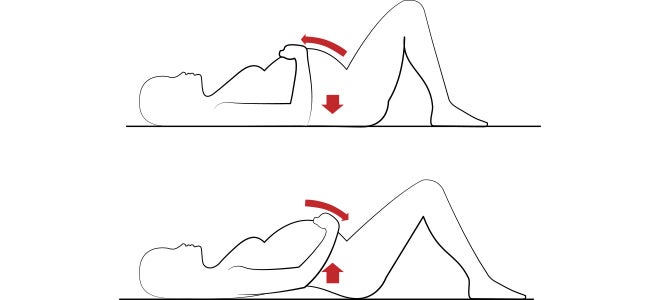
Action
1. Tilt pelvis while contracting abdominals and breathing out.
2. Relax pelvis while releasing abdominals and breathing in.
- Tilt your pelvis while standing, lying, sitting or kneeling.

